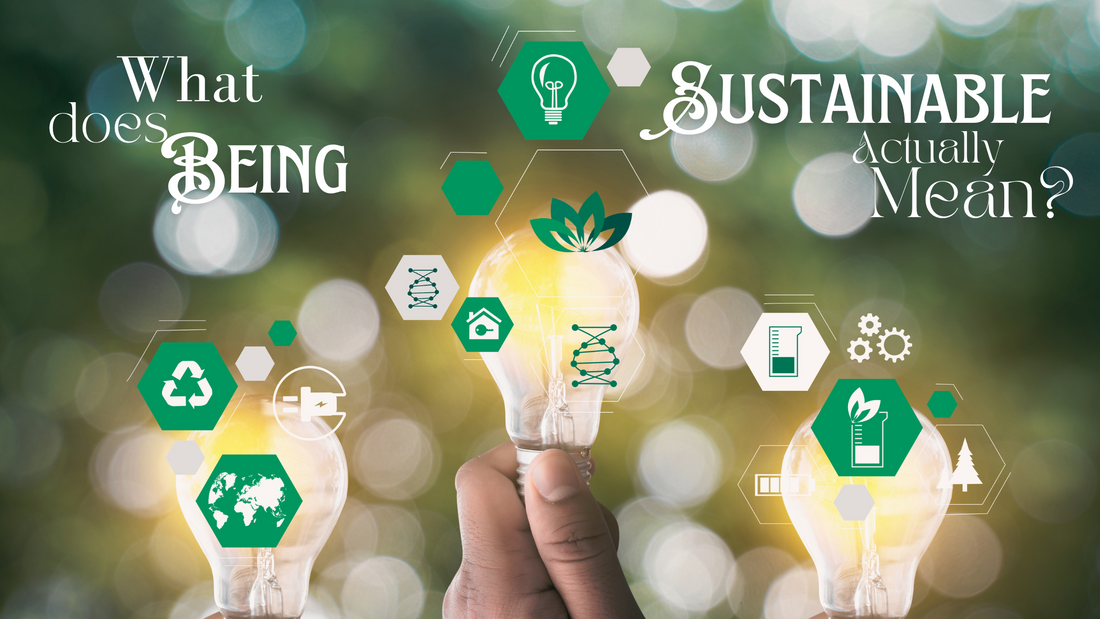
What Does Being Sustainable Actually Mean in Fashion?
In today’s world, the term "sustainable" is more than just a buzzword. It represents a crucial shift in how we live, consume, and think about our impact on the planet. But what does being sustainable actually mean? At Organique, we believe sustainability goes beyond fashion trends; it’s a lifestyle, a commitment, and a responsibility.
Understanding Sustainability
Sustainability refers to the ability to maintain or improve our quality of life without compromising the ability of future generations to meet their needs. It encompasses environmental, economic, and social dimensions, aiming to create a balance that allows the earth’s resources to be preserved for the future.
Environmental Sustainability
Environmental sustainability focuses on protecting natural resources and reducing pollution. This includes practices such as:
- Using Eco-Friendly Materials: Opting for materials that have a lower environmental impact, such as organic cotton, hemp, and recycled polyester.
- Reducing Waste: Implementing zero-waste fashion practices by upcycling old garments and minimizing production waste.
- Lowering Carbon Footprint: Choosing renewable energy sources and efficient manufacturing processes to reduce greenhouse gas emissions.
Economic Sustainability
Economic sustainability ensures that businesses operate in a way that is financially viable while also being environmentally and socially responsible. This involves:
- Fair Trade Practices: Ensuring fair wages and safe working conditions for all employees.
- Responsible Manufacturing: Using production methods that do not deplete natural resources and are ethical.
- Supporting Local Economies: Investing in local communities and reducing the economic disparities.
Social Sustainability
Social sustainability focuses on maintaining and improving the social quality of life. It includes:
- Ethical Fashion: Creating clothing in a way that respects the rights and dignity of workers.
- Community Engagement: Involving local communities in the decision-making process and ensuring their needs are met.
- Education and Awareness: Promoting awareness about sustainable practices and encouraging others to adopt them.
The Role of Sustainable Fashion
Sustainable fashion is a key component of a sustainable lifestyle. It involves creating clothing that is environmentally friendly, ethically produced, and economically viable. Here’s how Organique embraces sustainable fashion:
Eco-Friendly Materials
We use materials like organic cotton and hemp, which are grown without harmful pesticides and require less water than conventional fabrics. These materials are biodegradable and have a minimal environmental impact.
Ethical Production
Our clothing is produced under fair trade conditions, ensuring that workers receive fair wages and work in safe environments. We also support artisans and local communities, providing them with sustainable livelihoods.
Zero-Waste Fashion
Organique is committed to reducing waste through innovative design and production techniques. We upcycle old garments and use leftover fabric to create new pieces, minimizing our environmental footprint.
Why Choose Sustainable Fashion?
Choosing sustainable fashion is not just a trend; it’s a conscious decision to make a positive impact on the planet and society. Here’s why you should consider making the switch:
- Environmental Impact: By choosing sustainable clothing, you help reduce pollution, conserve water, and protect ecosystems.
- Ethical Considerations: You support fair labor practices and contribute to the well-being of workers.
- Quality and Durability: Sustainable fashion often means higher quality and longer-lasting garments, saving you money in the long run.
How to Embrace a Sustainable Lifestyle
- Educate Yourself: Learn about the impact of your choices and stay informed about sustainable practices.
- Make Conscious Choices: Opt for eco-friendly products, support ethical brands, and reduce your consumption.
- Advocate for Change: Spread awareness and encourage others to adopt sustainable practices.
Conclusion
Being sustainable means making choices that benefit the environment, economy, and society. At Organique, we are dedicated to promoting sustainable fashion and helping you make informed decisions that contribute to a better future. Explore our collections and join us in our journey towards a more sustainable world.
By understanding what sustainability truly means and incorporating it into our lives, we can make a significant difference. Visit our blog regularly for more insights on sustainable living, eco-friendly fashion, and ethical practices. Together, we can create a positive impact!
